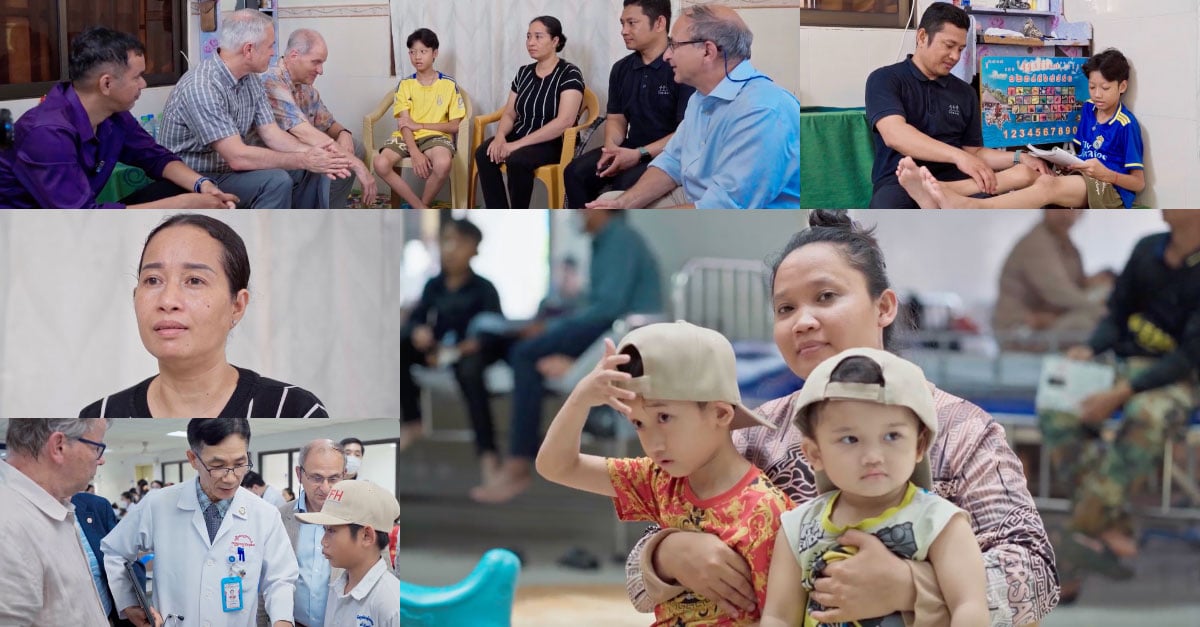The WFH supports the inherited bleeding disorders community in Cambodia by working with healthcare professionals, hemophilia treatment centres (HTCs), the Cambodia Hemophilia Association (the national member organization [NMO]) and government representatives. Through varied efforts such as the WFH Humanitarian Aid Program and the International External Quality Assessment Scheme (IEQAS), which helps ensure accurate laboratory diagnosis, the country is getting ever closer to being able to provide sustainable care to its inherited bleeding disorders community.
The key elements of WFH Humanitarian Aid Program aid are donated treatment products and training for specialists and physicians. It’s the training which helps physicians like Chean Sophal, MD, Head, Department of Pediatric Hematology and Immunology, Hemophilia Treatment Centre National Pediatric Hospital identify and diagnose new patients like Heng Kim’s son. Sophal has witnessed the transformations that was made possible by the Program. “It was challenging [in the past] because we did not have any factor replacement therapy for children with severe hemophilia A,” he explains, adding that those times before the WFH Humanitarian Aid Program were very difficult and challenging.
When we see symptoms, we rush to find treatment. Thanks to the treatment products, my sons are [healthy and safe].
—Try Kakada, a mother of two boys with hemophilia
Try Kakada, a mother of two boys with hemophilia, has experienced the difference the Program is making in Cambodia firsthand. Her brother became disabled due to lack of treatment. “With my sons, we know that they can receive treatment at the hospital. When we see symptoms, we rush to find treatment. Thanks to the treatment products, my sons are [healthy and safe].”
The Cambodian Hemophilia Association (CHA)—which has worked with the WFH since 2009—has played a pivotal role in distributing donated treatment. “There are two centres now,” says CHA President Kong Sithan. “Our goal is one per province.”
Families across Cambodia now have hope for the future thanks to the WFH, dedicated healthcare workers, and the strength of a growing hemophilia community. The goal—sustainable care—is still distant but getting closer.
To watch a series of videos on the work the WFH is doing in Cambodia, please click here.
The WFH Humanitarian Aid Program has donated over 19 million IUs of factor and over 470,000 mg of non-factor replacement therapy to Cambodia since 2015. Over 3.7 million IUs of factor, and over 140,000 mg of non-factor replacement therapy were donated in 2024 alone. To find out more about the WFH Humanitarian Aid Program, please click here.
About the WFH Humanitarian Aid Program
The WFH Humanitarian Aid Program improves the lack of access to care and treatment by providing much-needed support for people with inherited bleeding disorders in developing countries. By providing patients with a more predictable and sustainable flow of humanitarian aid donations, the WFH Humanitarian Aid Program makes it possible for patients to receive consistent and reliable access to treatment and care. None of this would be possible without the generous support of Sanofi and Sobi, our Founding Visionary Contributors; Bayer, CSL Behring and Roche, our Visionary Contributors; Grifols, our Leadership Contributor; and Takeda, our Contributor. To learn more about the WFH Humanitarian Aid Program, visit www.treatmentforall.org.













